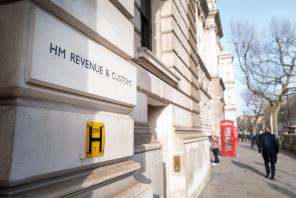

HM Revenue & Customs has won its legal case against a tax avoidance scheme promoter which will it see it collect more than £40m in unpaid taxes.
Hyrax Resourcing Ltd must now disclose the details of its tax avoidance scheme to HMRC, including with the names and addresses of 1,180 "high earners" who used it.
Hyrax's scheme was a disguised remuneration avoidance scheme, paying scheme users in loans so they could avoid paying income tax and national insurance on their earnings.
The ruling found scheme users were paid just enough to comply with the national minimum wage, with the rest of their income made up in loans which were transferred to an offshore trust in Jersey.
Users did not pay tax on all their earnings as the amounts received under loan agreements were not declared as income on tax returns.
According to HMRC, Hyrax accepted applications from users, created employment contracts, signed service contracts, paid employees and transferred loan agreements to offshore trusts, with scheme users paying the company 18 per cent in promoter fees to allow them access to the scheme.
The first-tier tribunal found Hyrax had not complied with the disclosure of tax avoidance schemes (DOTAS) rules which require promoters to tell HMRC about the schemes they sell. Therefore the promoter will be handed a £5,000 penalty per client and a £5,000 daily penalty for not disclosing.
Hyrax faces a penalty of almost £6m if it now fails to disclose the required information to HMRC, as well as the £5,000 penalty per day for not fully disclosing the scheme.
Hyrax does not have a right of appeal against the tribunal's decision but it can seek a judicial review.
HMRC confirmed it has investigated more than 100 promoters and others involved with tax avoidance in recent years.
Mel Stride, financial secretary to the Treasury said: "HMRC is cracking down on the unscrupulous promoters who sell these highly contrived tax avoidance loan schemes.
"Promoters need to take note of this decision and make sure they contact HMRC urgently about schemes they haven’t yet disclosed."
The loan charge relates to what HMRC calls disguised renumeration schemes, whereby employees were paid via loans instead of salary.
In the finance bill currently working its way through parliament the government declared these schemes to be illegitimate for tax purposes, leading to HMRC seeking tax on income dating as far back as 1999.
Data released in February showed private individuals will face a bill of £800m from the government’s loan charge.
rachel.addison@ft.com



